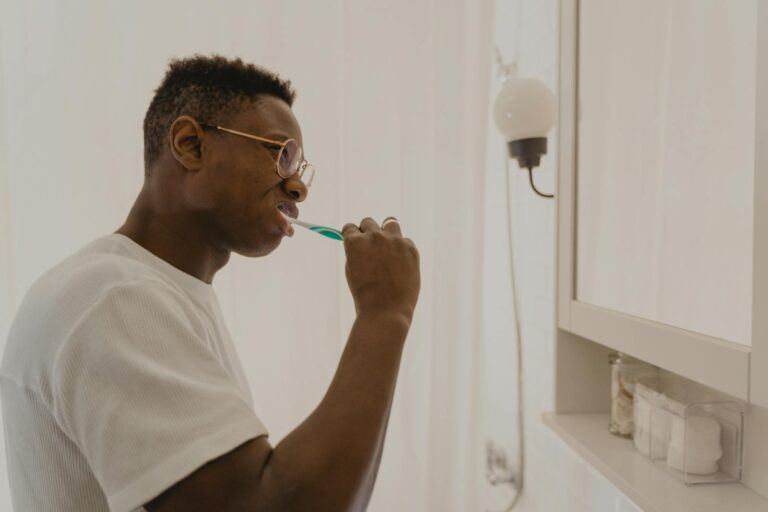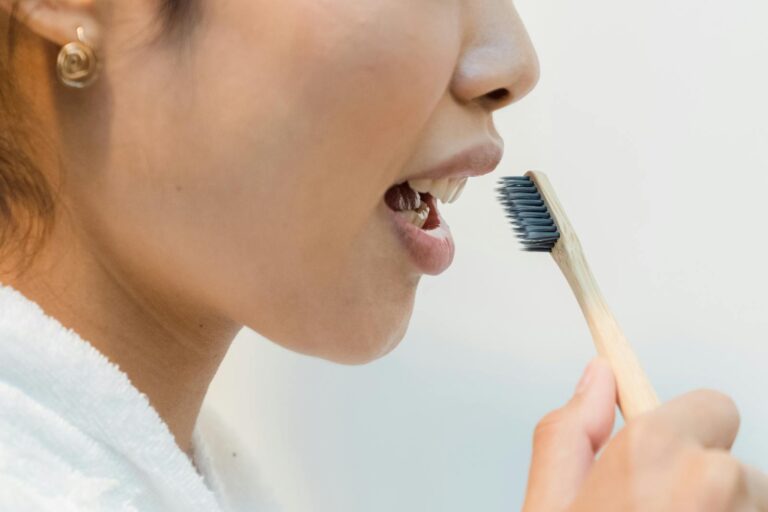Why Does My Breath Smell Bad in the Morning?
It’s a shared human experience: you wake up, stretch, yawn—and immediately notice it. Morning breath. Whether it’s dry, sour, or downright funky, bad breath in the morning is something most of us deal with. But have you ever wondered why it happens, and whether there’s anything you can do to stop it?
Let’s dive into the science behind that not-so-fresh morning mouth.
1. Saliva Takes the Night Off
During the day, your mouth stays relatively fresh thanks to one hardworking hero: saliva. It helps wash away food particles, bacteria, and dead cells that can otherwise start to smell. But when you sleep, saliva production drops significantly. Without that natural cleansing flow, bacteria get the perfect environment to thrive and multiply—especially the anaerobic kind that produce volatile sulfur compounds (VSCs). These are the gases that smell like rotten eggs or sulfur.
Dentist tip: Try to breathe through your nose while sleeping. Mouth breathing dries things out even more and makes morning breath worse.
2. Tongue Coating: The Overnight Buildup
Your tongue is like a sponge, especially at night. As bacteria multiply in the still, dry environment of your sleeping mouth, they tend to settle into the crevices of your tongue. That white or yellowish coating you see in the morning? It’s a mix of bacteria, food debris, and dead cells—aka the perfect recipe for bad breath.
Dentist tip: Scrape your tongue every morning before brushing. You’ll be shocked at how much fresher your mouth feels.
3. Unfinished Business From Last Night
If your bedtime oral hygiene routine is rushed, incomplete, or skipped altogether, you might be setting yourself up for some seriously unpleasant breath in the morning. When food particles are left behind—especially between your teeth or deep along the gumline—they become a feast for bacteria. As these bacteria digest leftover proteins and sugars overnight, they release foul-smelling gases that contribute to morning halitosis.
And it’s not just about leftover food. Plaque, which builds up throughout the day, can also accumulate while you sleep if not properly removed. This creates a sticky environment where odor-causing bacteria thrive, particularly in hard-to-reach areas between your teeth.
Dentist tip: Take your nighttime routine seriously. Floss thoroughly, brush for at least two minutes (don’t forget your gumline), and consider using an antibacterial mouthwash to reduce bacterial activity overnight. Your morning breath will thank you for it.
4. Your Diet Matters
What you eat the night before can definitely make an appearance in your breath the next morning. Garlic, onions, alcohol, and heavily spiced foods are known offenders. These foods contain compounds that are absorbed into your bloodstream and eventually exhaled through your lungs—even hours after digestion.
Dentist tip: Limit odor-causing foods late at night if you’re worried about morning breath. And drink plenty of water before bed.
5. Medical Conditions & Medications
Certain medications (like antihistamines, antidepressants, or blood pressure pills) can reduce saliva production, making you more prone to dry mouth and bad breath. Medical conditions such as acid reflux (GERD), sinus infections, or untreated sleep apnea can also contribute to foul morning breath.
Dentist tip: If your morning breath is consistently severe or comes with other symptoms (like a sour taste, nasal congestion, or dry mouth), talk to your doctor or dentist. There could be an underlying issue worth checking out.
Final Thoughts
Morning breath may be normal, but that doesn’t mean you have to suffer through it. With a few intentional habits—like cleaning your tongue, staying hydrated, and practicing great nighttime oral hygiene—you can wake up feeling a little fresher.
And if your bad breath feels extreme or stubborn, don’t brush it off (pun intended). A dental check-up might reveal something deeper.



